“Your Last Straw Is Often Our First Clue That Something Is Wrong.”
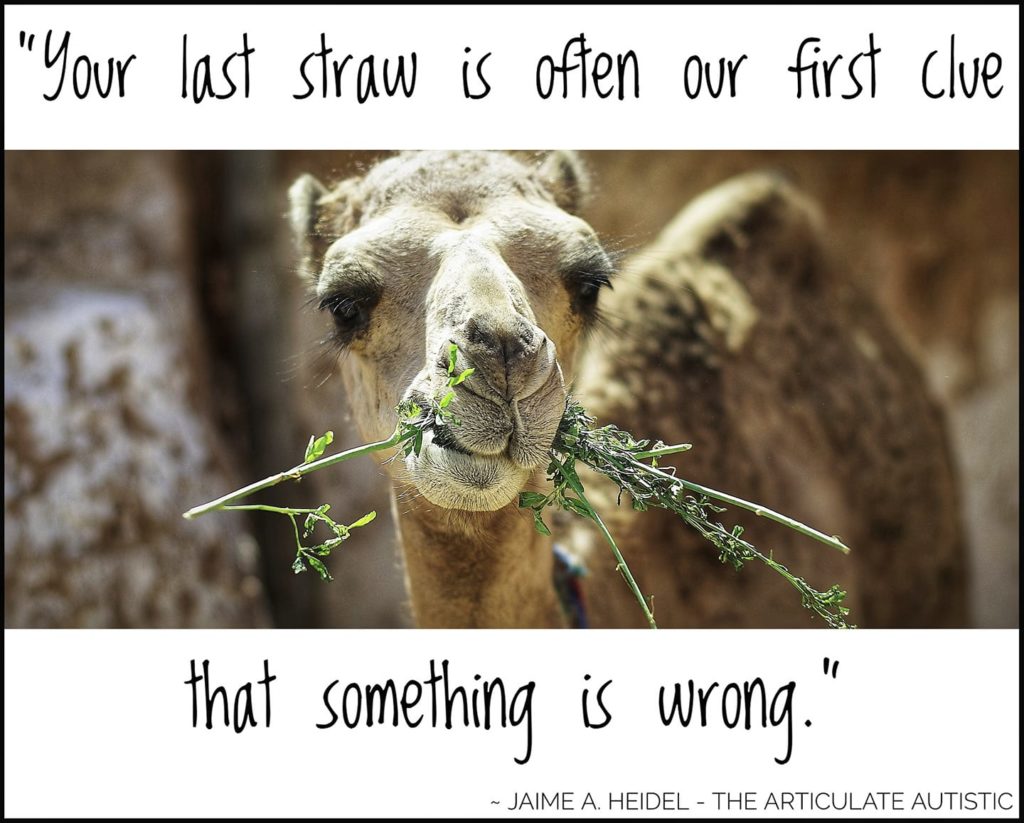
I’m never going to be able to say this enough. I know I’ve said it in other posts, but I wanted to give the quote a memorable post of its own with a cute camel chewing on some grass.
If you’re not familiar with the saying, “The straw that broke the camel’s back”, allow me to explain:
This is a euphemism for the final slight, injury, or insult that makes a person go from relatively calm and able to handle it to lashing out in anger.
The saying means that all living beings can only take so much. For example, a camel can only carry so much straw or another load before it finally hurts the animal.
And, with people, it’s usually stuff that adds up slowly over time. Your car breaks down, your child gets sick, you’re passed over for a promotion at work, and, suddenly, you drop a glass washing dishes and burst into tears.
That’s the “straw that broke the camel’s back”.
Here’s where this becomes an issue in autistic to non-autistic communication and vice versa.
Non-autistic people communicate via looks, gestures, facial expressions, body language, and indirect words that other non-autistic people can pick up on and understand.
Autistic people, on the other hand, usually communicate with blunt, direct words (written or spoken), lack of activity or response, and behaviors non-autistic people have trouble reading.
This causes us to miss each other’s cues on BOTH sides of the aisle!
Let’s say, for example, you’re non-autistic and your partner is autistic. You’ve been showing them on every conceivable way (for your neurotype) that you’re upset about something, but they just keep “ignoring” you.
Finally, you blow up at them and tell them what’s on your mind in very direct and blunt language with a few colorful words thrown in for good measure.
Meanwhile, your partner is in a complete state of shock because this isn’t the LAST time he’s hearing of it, it’s the FIRST! Your last straw is his first clue.
Now, let’s say you are autistic and your partner is non-autistic. You’ve been communicating to your partner for the past hour that you’re no longer comfortable at the party and you really need to go.
You’ve gone non-verbal, you’re pacing, you’re humming, and you’re snapping at your partner because he’s “ignoring” your needs until you finally start crying and bolt for the door.
He’s in shock! Your last straw was his first clue!
This can happen on both sides, which is why it’s SO important to spend time learning each other’s languages and avoid making assumptions.
If your autistic loved one appears to be willfully ignoring your needs, check in with them using plain and direct language when you have their full and undivided attention.
If your non-autistic loved one appears to be willfully ignoring your needs, check in with them when you’re in a calm place and ask them directly.
No matter your neurotype, I think direct communication is best all around, especially when you’re trying to avoid painful and confusing arguments.
The next time an argument is brewing, think of this camel chewing innocently away, not a care in the world, and keep reminding yourself, “Last straw, first clue”, and change the way you’re communicating.
It may save a LOT of heartache in the long run.
Reduce traumatic misunderstandings between you and your autistic loved one. Pick up your copy of my book, “What Did I Do Wrong?” by clicking the photo below.
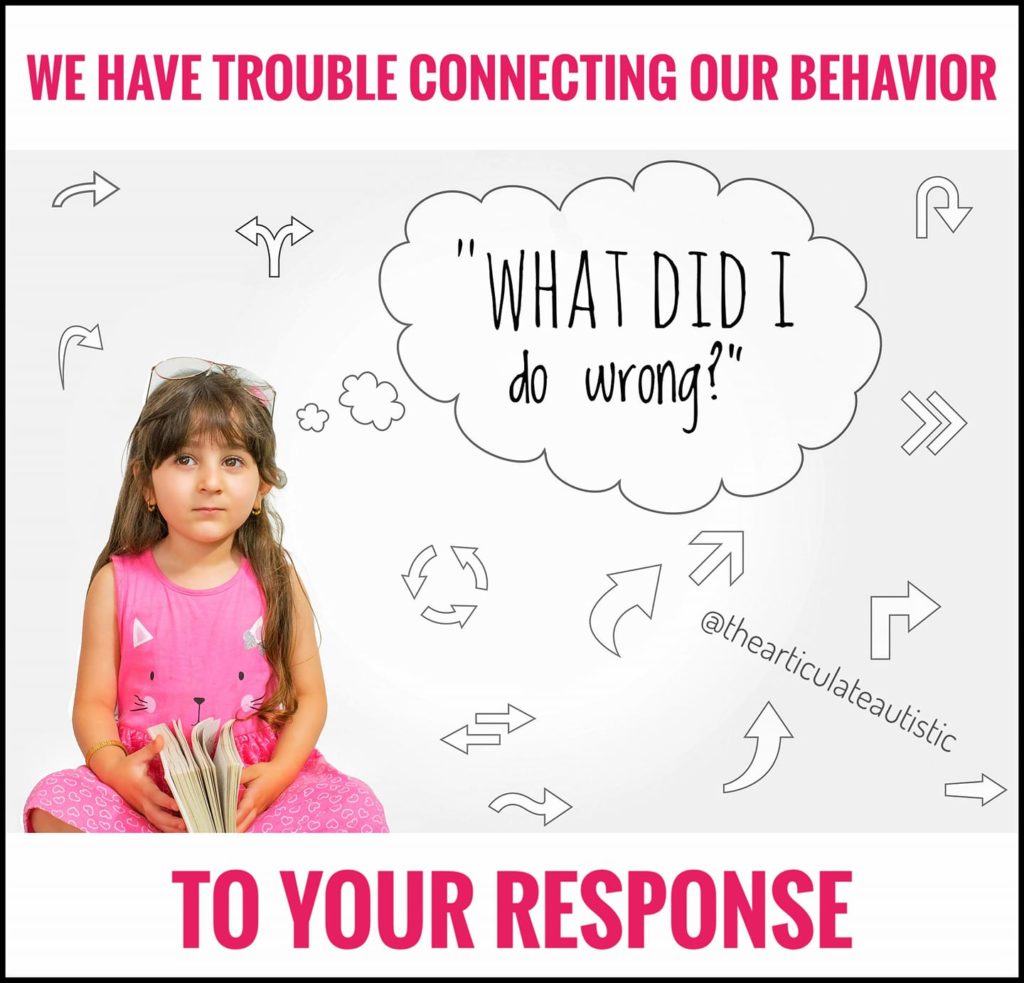

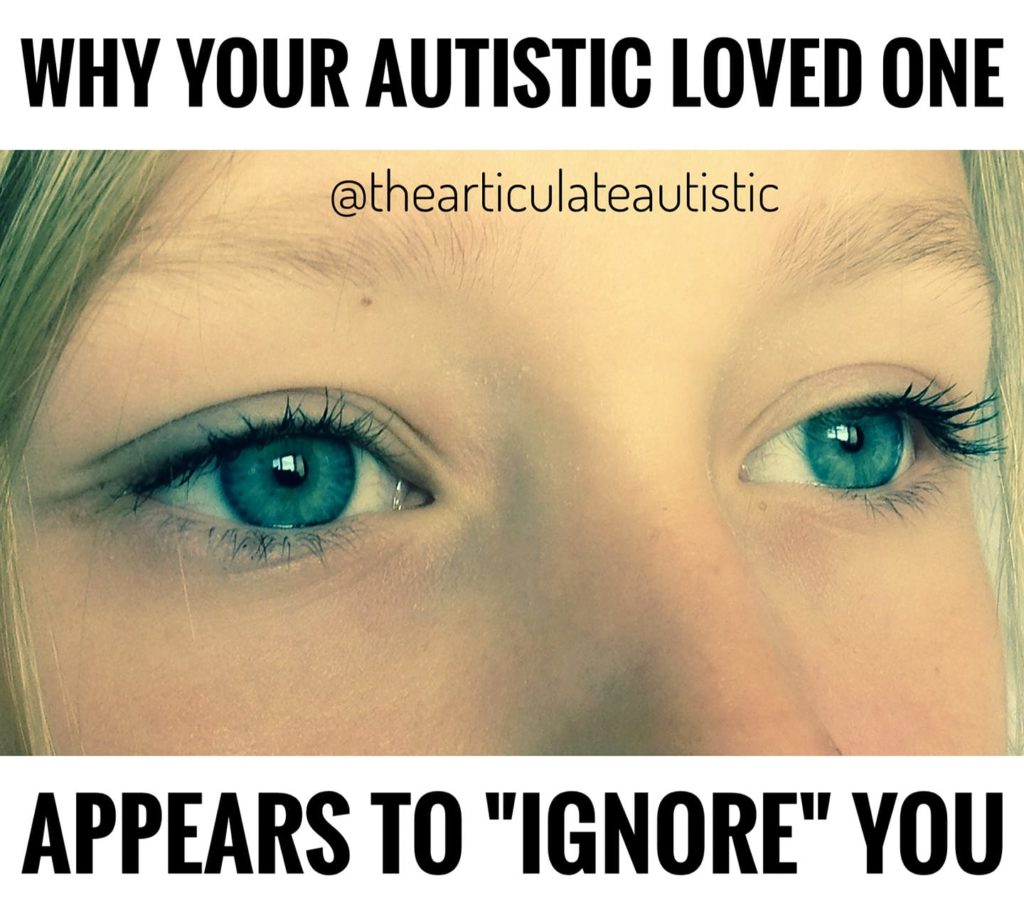
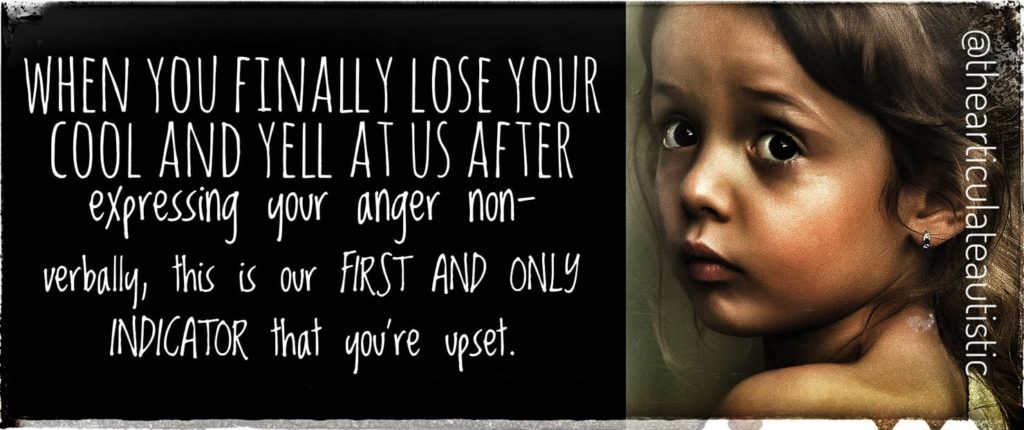
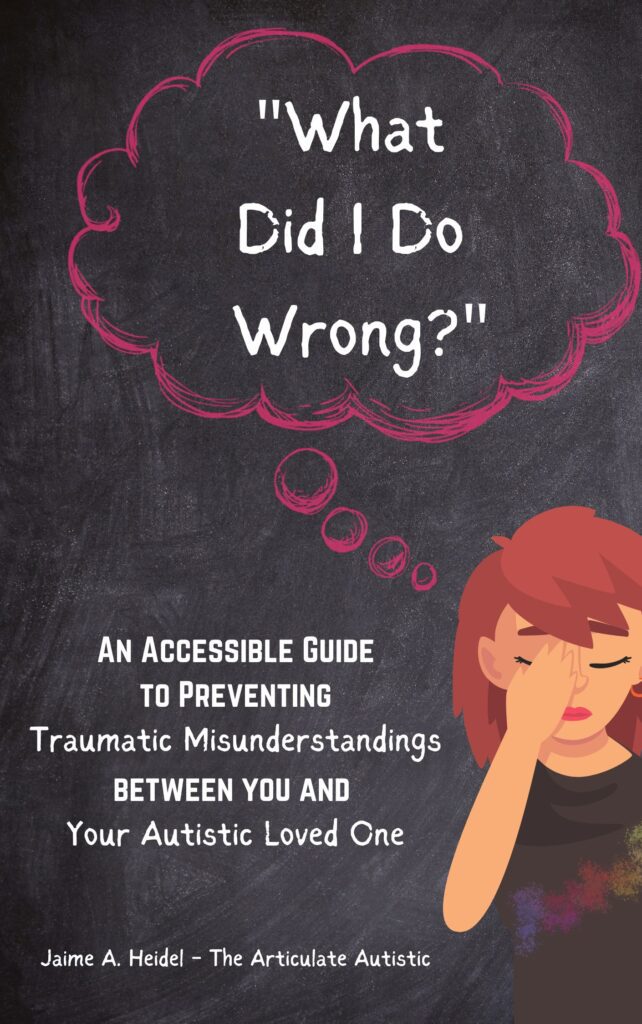




1 Response
[…] emotions seem to go from 0 to 60 very quickly to us because your last straw is often our first clue. Furthermore, sudden neurotypical emotional outbursts (since they seem to come out of nowhere for […]